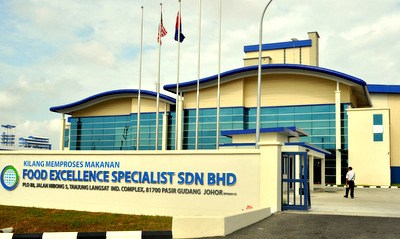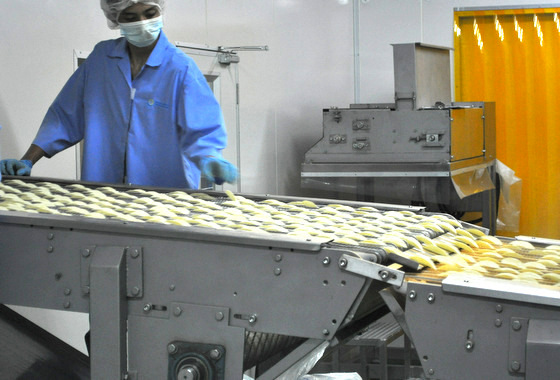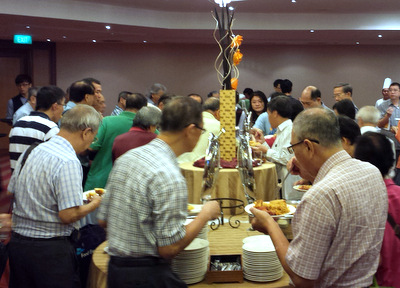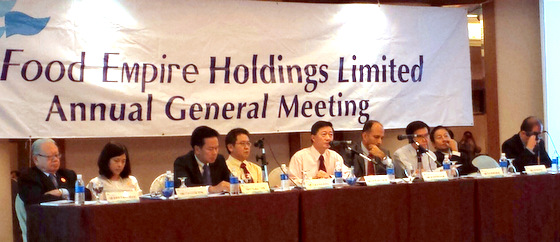 Photo by June Chai.
Photo by June Chai.  Time & date: 3 pm, 24 April 2015
Time & date: 3 pm, 24 April 2015
Venue: Riverview Hotel
Russia and Ukraine are the two biggest markets for Food Empire's instant coffee, and their currencies' depreciation last year has hit the company hard.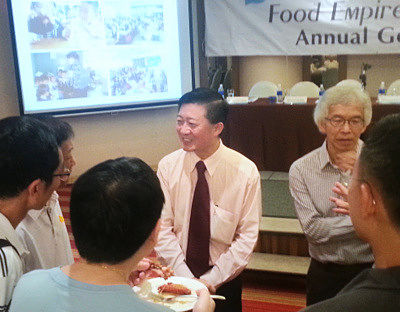 Executive chairman Tan Wang Cheow (wearing tie) speaking with shareholders after the AGM.
Executive chairman Tan Wang Cheow (wearing tie) speaking with shareholders after the AGM.
Photo by Leong Chan Teik.Food Empire reported a net loss of US$13.6 million last year.
If forex losses were excluded, there would have been a net profit of US$15.6 million.
These markets and their prospects were foremost on investors' minds at the AGM.
They learnt that Food Empire's outlook depends on where the ruble trades at versus the USD, which in turn is affected by the price of crude oil since Russia's economy depends heavily on its oil revenue.
Here are some of the highlights of the Q&A session:
Q: Trade receivables have decreased from US$51.5 million to US$40.4 million. Can the Board comment on this?
Tan Wang Cheow, executive chairman: Collection has improved and sales have also come down because of the situation in some markets.
Q: Were there sales-related promotions in Russia?
Tan Wang Cheow: We have been relatively conservative in A&P last year. It has dropped by over US$10 million.
Q: The group had a net loss of US$13 million last year. There was a forex loss of US$29 million. Can you explain how the forex loss arose?
Tan Wang Cheow: At the end of 2013, the exchange rate was 32 rubles to a USD. At the start of this year, it was about 56 rubles. In the last quarter of 2014, we suffered about US$17 million forex loss. 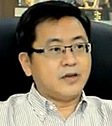 CFO William Fong (left): There are realised and unrealised losses. We sold to our subsidiaries in USD.
CFO William Fong (left): There are realised and unrealised losses. We sold to our subsidiaries in USD.
In Russia, our finished products were sold to customers in rubles. When the ruble depreciated, they had to re-state their receivables.
If they have paid us, it's realised loss. If they haven't, it's unrealised loss.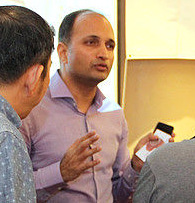 CEO Sudeep Nair.
CEO Sudeep Nair.
File photo.Q: Can you tell us about the Russian situation?
Sudeep Nair, CEO: Last year was a time of volatility and the depreciation of the ruble, especially towards the end of the year. This year, the ruble has bounced back and is still volatile. Oil prices are more stable. To a large extent, Russia's economy is very dependent on oil and gas.
Our business is strong, the sales are there, we are still the market leader. It's just that we have forex losses and we have to make sure we manage our costs. Local manpower costs have come down -- as salaries and lots of expenses are in rubles.
Q: In that case, have you dropped your selling prices in rubles?
Sudeep Nair: In Russia, we have to import coffee and non-dairy creamer -- so our cost of goods has gone up because the ingredients are priced in USD. All companies have raised their prices last year. We have been increasing prices every few months, and it continues to happen.
The purchasing power of consumers has gone down, inflation is expected to continue to be high this year. The is some fall in demand but for F&B, the effect is not significant as for big items like cars.
Ukraine is in a worse situation. We will try to limit our damage there going forward.
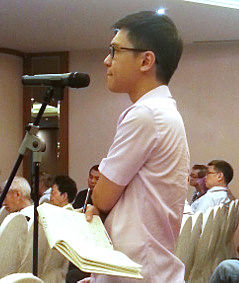 Shareholder Stanley Lim, CFA.
Shareholder Stanley Lim, CFA.
Photo by Leong Chan Teik Q: Can you comment on the jump in debt-to-equity ratio from 20% to 30%?
Tan Wang Cheow: We have a number of greenfield projects -- our new building in Playfair Road, the potato chips factory and non-dairy creamer factory in Johor and a coffee plant being built in India. We have also shifted to a new packaging factory in Klang.
Sudeep Nair: Compared to past crisis, this time the Group faces a different challenge. We have these new plants which need time to bring up sales, to find external clients. When we started these projects four years ago, we never expected a situation where the oil price dropped, the situation in Russia and Ukraine... 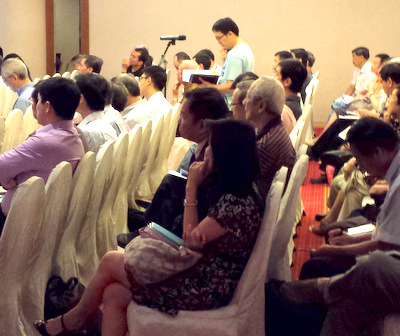 Photo by June Chai. But these greenfield projects will help us in the longer term to stabilise our raw material prices and push into ingredients sales. These will be sold in Asia, so there will be more sales coming from Asia.
Photo by June Chai. But these greenfield projects will help us in the longer term to stabilise our raw material prices and push into ingredients sales. These will be sold in Asia, so there will be more sales coming from Asia.
Tan Wang Cheow: To add, in USD terms, our revenue came down 5% but in local currency terms, it was up 17%. So it's not all bad. And we would have been profitable if not for the US$29 million forex loss.
More than US$5 million loss came from the greenfield projects -- add that back in and you can see the positive potential in the future.
Q: Can you give us a range where the gross margin is there and it's profitable?
Sudeep Nair: The ruble has been very volatile. If it stays at current levels (50-55 rubles to a USD), and we are able to make 1 or 2 more price increases this year, we will be profitable. But if it goes down to 65, we are back to square one.
|
|


